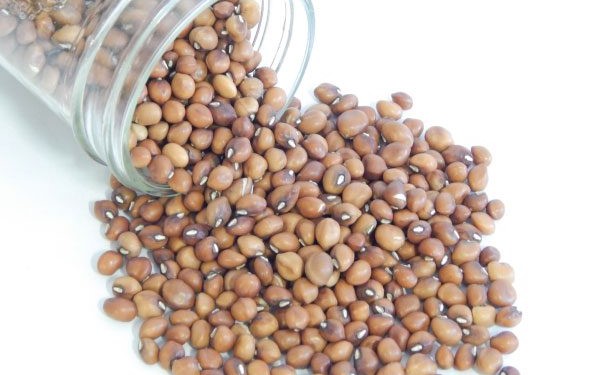Joyce Ebebeinwe of the Health of Mother Earth Foundation (HOMEF) in this opinion article on the planned commercial release of Bt Cowpea in Nigeria, attempts to elaborate on facts about cowpea variety and why she believes that the move for its commercialisation is erroneous

Currently, Nigeria and indeed Africa suffers pressure to accept modern biotechnology as the solution to agricultural problems and the technology is portrayed as the silver bullet to the challenge of food security. Recently, Nigeria’s National Biosafety Management Agency (NBMA) issued permit to Institute for Agricultural Research (IAR), Zaria for commercial release of Bt (Bacillus thuringiensis) cowpea which is said to be resistant to the Maruca insect pest.
Cowpea (popularly known as beans) is an indigenous African crop and a major source of protein for the Nigerian populace where it is prepared and eaten in various forms either as ewa agoin, akara or moi moi. It is a staple food crop and an important source of income. The crop is also very essential for animal feed.
Nigeria has had a yearly average production of about 2.7 million metric tons over the last 10 years and is known as the prime producer of cowpea in the world. Ironically, Nigeria is also the largest importer of cowpea in Africa. Clearly, the economic challenges for farmers or the unavailability of food is not solely a problem of production.
This article serves as a call on the Nigerian populace to pay attention to the issues with agricultural biotechnology; to speak out against it and on the government to be circumspect about profit-driven technologies that aim to contaminate our natural varieties, destroy our agricultural systems; our socio-economic fabric and assert unbridled control over our food system. Here are a few reasons why the commercial release of genetically modified beans is an erroneous move.
Bt cowpea is linked to severe health implications
Bt cowpea contains a Cry1Ab gene developed by Monsanto (now Bayer) and it is the same as in Bt maize event, MON810 manufactured by the company. Bt Cowpea has not yet been commercialised anywhere in the world but current in-vitro experiments on the maize event have revealed that protein produced by the Cry1Ab gene has toxic effects on human liver cells. Researchers in Italy in November 2008 resolved that the consumption of the Bt maize induced alterations in intestinal and peripheral immune response in mice.
Additional long-term (up to two years) animal feeding studies were recommended when another study with a different investigative process showed that effects (seen in blood cells, adrenal glands, kidney weights etc.) linked with the Bt maize are generally detected after about four months of consumption.
Bt cowpea will contaminate natural varieties of the crop
Cultivation of a GM variety of cowpea will bring about an irrevocable contamination of the natural and indigenous varieties which have been nurtured over the years by farmers. Study of pollinator characteristics of the natural West African wild cowpea populations shows that the Bt-gene can pass from the genetically modified lines to non-modified lines resulting to natural cowpea and indeed other plants taking up the resistance trait and causing ecological imbalance.
Bt cowpea/genetically modified crops will not ensure economic stability for farmers
Genetically modified crops favor industrial agriculture which encourages land grabs for monocultures. Small-scale farmers usually intercrop cowpea with other cereals, mostly staple crops such as maize, millet and sorghum. Also, the high cost of GM seeds and the inability of farmers to reuse GM seeds present serious threat to farmers. Again, Nigeria’s cowpea is presently under a ban from the EU because of quality and residual chemicals issues and majority of the EU locals reject GMOs. Where will the export market for this Bt cowpea be?
Bt cowpea is not the solution to agricultural problems
The pro-GMO gangs present the technology as a means to increase production and cater to the increasing populations. How about the fact that the world currently produces double the amount of food we consume but most of it is wasted due to poor storage and processing facilities or access to markets? This Bt solution responds only to one of the challenges of production that is the pod borer pest and apart from the pod borer (Maruca vitrata), other pests disturb cowpea which are not controlled by the Bt toxin. Biological methods (e.g. plant or fungal based bio-pesticides) exists which are effective against the Maruca insect as well as other pests.
Use of this Cry1Ab Bt gene was discontinued in South Africa because cultivation of the maize modified with it led to enormous pest infestation. This is very instructive as Nigerians are made to believe that this Bt cowpea will bring about the reduction in pesticide use and increase yield by a paltry projected 20 percent.
In place of the Bt solution which presents risks to health, ecosystems and which may lead to more intense pest invasions, Nigeria can focus on biological control and augment with governmental action towards provision of needed infrastructure and other necessities such as credit schemes, access to land and extension services to farmers for enhanced productivity and food security/food sovereignty.
We shouldn’t be used for experiments
Nigeria will be the first country to commercialise cultivation of this genetically modified crop. Field trials have been ongoing in Burkina Faso, Ghana and Malawi and there has been strong opposition to its release. This resistance across African countries buttresses the enormity of the threat genetic modification of food crops poses to our lives and agricultural systems.
The risks with Bt cowpea/genetically modified food crops are numerous. Scientists generally observe unexpected impacts in and from genetically modified crops and we are faced with intergenerational consequences. This move by the Nigerian government goes against the precautionary principle (a major principle of the Cartagena Protocol to which Nigeria is signatory) which advises governments to take precaution in the face of uncertainty of safety of GMOs in terms of human and environmental health.
